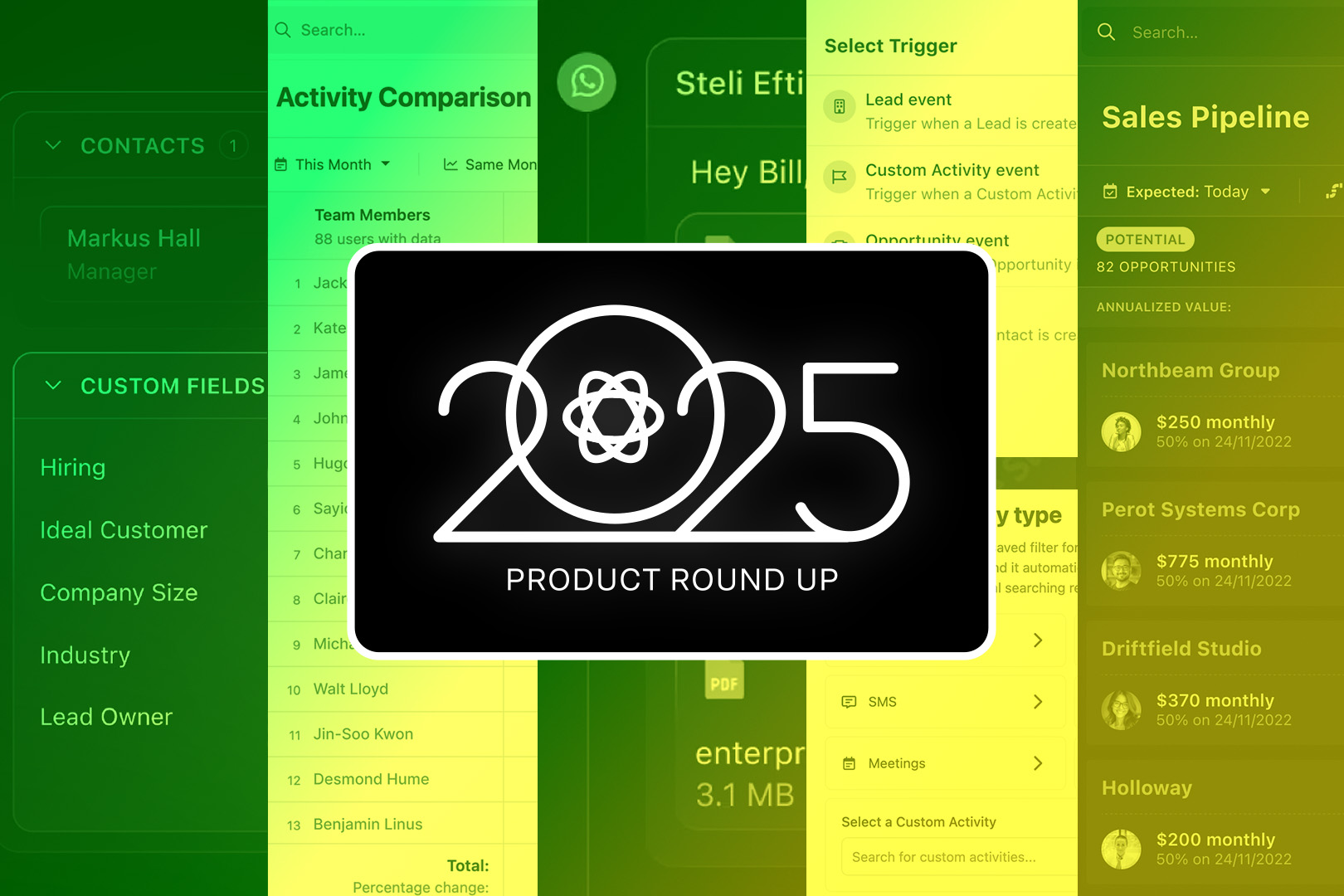“Since going remote, I have no clue what my sales reps are doing every day. They were short on Q3 targets, and I don’t even know if they’re making the calls they need to be making… what’s the plan of action here?”
Sound familiar?
As companies shift to remote work for the long term, we find ourselves (as managers) disconnected from the day-to-day updates and quick check-ins with our sales team.
In this article, we're going to examine the importance of over-communication when working in remote sales, with a focus on keeping everyone up to speed on every prospect, deal statuses, and ensuring sales rep transparency to fuel competition.
Keep Everyone On the Team Up to Speed On Prospect and Deal Statuses
Setting the standard for over-communication early avoids the need for “nudges” and countless Slack messages asking for prospect status updates.
It’s not like working in the same physical office where you can holler across the room for an update or steal two minutes of someone’s time to get an instant answer.
Progress halts when sales reps delay information sharing. Nip this in the bud by setting standards and signing up for a CRM that supports information sharing.
Creating a process for over-communication will prevent these problems from occurring. For example, if your sales team is using Close as your CRM, every call you make—phone or video—gets logged and attached to the prospect’s contact.
Integrating Zoom with Close allows you to launch and review your videos from inside the CRM platform amongst all information included in the client’s profile.

The Close Zoom integration allows any of your sales reps to become versed on the prospect and deal status without having to request and wait for an update to roll in over Slack.
Use Transparency as a Tool to Inspire Team Action
Distance shouldn’t deter the competitive energy shared between your sales reps from flourishing.
Over-communicating current progress towards quarterly targets, on top of the company-wide targets, creates competition amongst the team; fueling each sales rep to improve on their performance.
Intentionally sharing leaderboards and rankings motivates sales reps and keeps them inspired to reach the top of the ranks (and stay there).

These leaderboards, automatically generated by Close’s CRM, highlight top-performing reps and provide a monthly overview of total sales activity.
Working remotely removes the pressure for sales reps to ‘keep up with the pack’ since they aren’t interacting with each other face-to-face regularly.
Using our leaderboard as a resource, managers can craft weekly internal emails highlighting the top three and bottom three sales reps from the week. Those leaderboard updates will spur competition for the top spots and light a fire under the low-performing sales reps.
I've been shouting this from the rooftops for years. And I'll keep doing so as long as every second remote sales team I come across still doesn't get it right:
Remaining Remote Relies on Over-Communication
Over-communicating holds everyone accountable for sharing updates and looping in the appropriate team members instead of placing the onus on the sales rep seeking information.
Close streamlines this process, keeping all client information and status updates tied to the specific client profile within the CRM.
Maintaining transparency as a priority promotes healthy competition among your sales reps as they strive to secure and remain the top spot on the leaderboard. As remote work grows in popularity, you need to ensure that your team is well-versed in handling video sales calls.
Want to give Close a spin and see how it can streamline your sales communication? We've got a 14 day trial with your name on it!












